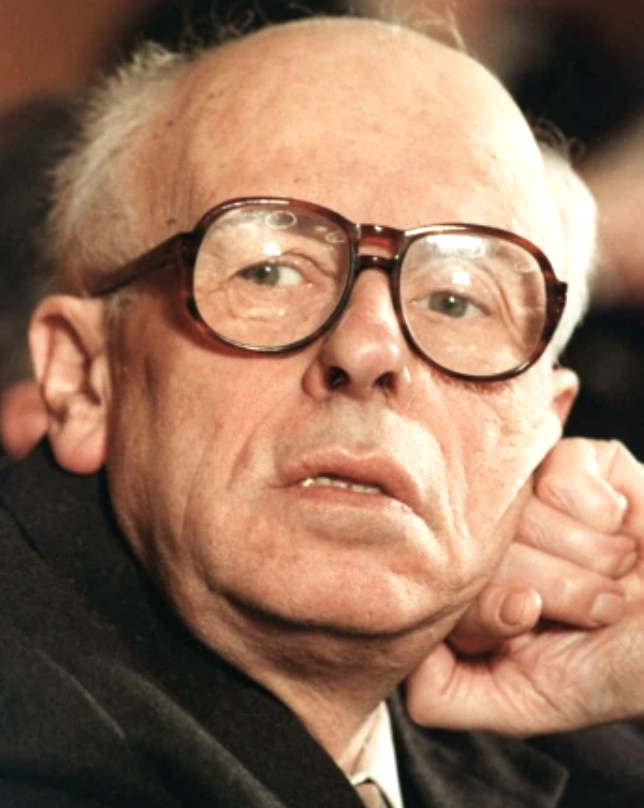On this date in 1921, Andrei Dmitrievich Sakharov — nuclear physicist, dissident, Nobel laureate and activist for disarmament and human rights — was born in Moscow to Yekaterina Alekseevna (née Sofiano) and Dmitri Ivanovich Sakharov.
His father was a physics professor and nonbeliever, and his mother and grandmother were religious. The younger Sakahrov decided in his early teens that he was an atheist but believed a “guiding principle” transcended physical laws. (“Andrei Sakharov: The Conscience of Humanity,” 2015)
He studied physics at Moscow State University and after graduating worked in a laboratory in Ulyanovsk. He married Klavdia Alekseyevna Vikhireva in 1943. They raised two daughters and a son. He earned a Ph.D. in 1947. Under the auspices of the Physical Institute of the Soviet Academy of Sciences, he joined a team that built the USSR’s first device, a low-yield uranium bomb detonated in August 1949.
Sakharov played such an integral role in his next project that he became known as the father of the Soviet hydrogen bomb, a design first detonated in 1955. He would later express worry about the effects of radiation, along with deeper concerns: “What most troubles me now is the instability of the balance, the extreme peril of the current situation, the appalling waste of the arms race.” (“New Dictionary of Scientific Biography,” 2008)
He worked on what became the Partial Nuclear Test Ban Treaty signed in Moscow in 1963 by the the U.S., Soviet Union and Britain, banning nuclear weapons tests in the atmosphere, outer space and under water. He returned to fundamental science and began working on particle physics and physical cosmology, including theorizing why the curvature of the universe is relatively small.
He began taking public stances that were politically (and hence physically) risky in a “gulag” state. He opposed scientific academy membership for a proponent of the pseudoscience of Lysenkoism, which denies genetics and well-established agricultural science. The application of Lysenkoism led to the starvation of millions of Russians. Sakharov also opposed the development of an anti-ballistic missile system..
Sakharov married Yelena Bonner in 1972, three years after his first wife died. Bonner, who had a medical background, was a fierce critic of human rights abuses and thus fell under the eye of the KGB along with Sakharov. She was in Italy for medical treatment in 1975 and traveled to Norway to accept his Nobel Peace Prize after he was denied a visa to attend.
The Nobel citation called him “the conscience of mankind” and said he had “fought not only against the abuse of power and violations of human dignity in all its forms, but has in equal vigor fought for the ideal of a state founded on the principle of justice for all.”
After he denounced the 1979 invasion of Afghanistan, he was arrested and banished to Gorky, 250 miles east of Moscow, where he spent seven years in exile. He was named 1980 Humanist of the Year by the American Humanist Association and in 1988 was the recipient of the International Humanist Award by the International Humanist and Ethical Union.
The European Parliament established the Sakharov Prize for Freedom of Thought, to be given annually for outstanding contributions to human rights, in 1985. Biographer Gennady Gorelik called him “a totally nonmilitant atheist with an open heart.”
He died at home in Moscow at age 68 of dilated cardiomyopathy. (D. 1989)


